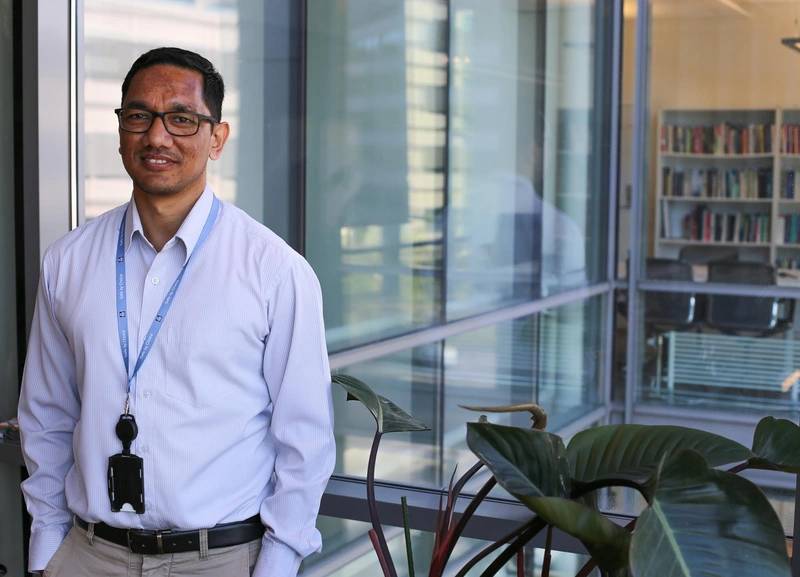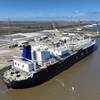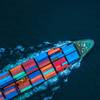Marine Scrubbers: Yara Marine Plots the Path Forward, Post-COVID-19
Yara Marine Technologies COO Ina Reksten and Research and Development Manager Shyam Bahadur Thapa reflect on the effects of the coronavirus crisis and share their vision for a future beyond the pandemic.
2020 will go down in history as the year that changed everything for many industries, not least the marine exhaust gas cleaning segment. “The coronavirus turned our world upside down virtually overnight,” confirms Ina Reksten, Yara Marine Technologies COO. Driven by the impending IMO 2020 sulfur cap, the scrubber market was in the middle of a historic boom when Reksten joined Yara Marine from parent company Yara International a couple of years ago.
“In 2019 we had a huge ramp-up to deliver on orders,” she says. Not unexpectedly, stakeholders stepped back toward the end of 2019 to see how regulations were going to be enforced and get a feel for fuel availability and price. Once the situation became clear, they would adjust their plans and proceed with the next steps toward emissions abatement.
That scenario never played out. “We never got the chance to see how things would have developed before the coronavirus crisis hit. Those that had invested in scrubber technology were happy, but Covid-19 has overshadowed everything since,” Reksten confirms. “It hit our core customers, so it has hit us.”
“We had high hopes for the scrubber market in 2020, but Covid-19 changed all that,” says Shyam Thapa, Yara Marine Innovation Manager. “Travel and distancing restrictions made it difficult to do business, and the resulting fall in oil prices weakened the scrubber case substantially.”
Crisis accelerates change
Even before the crisis, though, Reksten tells that Yara Marine was planning to expand beyond scrubbers. “We had adopted a new mission, to provide technologies to enable a greener maritime industry. The focus is on what we call ‘close to core’ technologies, in the intersection between green and maritime.”
Now that mission has become top priority.
“We believe the industry needs companies who can provide a scope of technologies outside the traditional maritime sphere,” she relates. Having access to adjacent technologies is key to the mission: “Yara Marine does not have a big technical overlap with our parent company Yara International, but there are still substantial synergies. They have a clear environmental profile, and they are a strong advocate for applying innovative technology in traditional business areas.”
Digitalization is an important part of the plan, she says. “We can use digital technology to help our customers meet environmental requirements. We have access to large amounts of data, but what can we do with it? This is a challenge for us just like for everybody else, but we have a parent company that has made great progress in exploiting data to protect the environment.”
 “In order to help customers meet the IMO’s target of 30 percent reduction in CO2 emissions by 2030, we are looking into other optimizers, like fuel efficiency. We are also exploring technology to enable the use of ammonia as fuel. Ammonia is one of Yara International’s biggest products, and they have vast experience to share from virtually the entire value chain,” said Shyam Bahadur Thapa, Research and Development Manager, Yara Marine Technologies
“In order to help customers meet the IMO’s target of 30 percent reduction in CO2 emissions by 2030, we are looking into other optimizers, like fuel efficiency. We are also exploring technology to enable the use of ammonia as fuel. Ammonia is one of Yara International’s biggest products, and they have vast experience to share from virtually the entire value chain,” said Shyam Bahadur Thapa, Research and Development Manager, Yara Marine Technologies
IMO 2020 still a driving force
“Regulations will definitely still have an impact into the future, but it has become more difficult to see to what extent,” Reksten observes. Additional factors in the overall picture include the open vs. closed loop scrubber debate, public sentiment, and disparate port restrictions. “All these will affect our product directly. A lot depends on how customers look at the investment in scrubbers, but increased requirements for reporting and monitoring will drive their decisions.”
Thapa notes that Yara Marine delivers mostly open loop scrubbers, though they offer both hybrid and closed loop. “But right now we have only inline scrubbers, and bypass technologies make up 30 percent of today’s market, so we plan to introduce U-type products in the near future,” he tells. “We are also working on a closed loop upgrade option if customers want. Interest is down right now for hybrid or closed-loop solutions, but it might pick up again, depending on oil price development.”
Reksten believes that CO2 emission goals will trigger future discussions as well. “Everybody is working on how to resolve this critical issue,” she says, with engine types, alternative fuels, and exhaust cleaning all figuring into the picture. “We will need to use many solutions to start with. This may evolve into fewer systems that will gain traction over time, but shipping is a fragmented industry, not least with a lot of partnerships. We will have to see how this trend plays out.”
Shyam Thapa concurs: “In order to help customers meet the IMO’s target of 30 percent reduction in CO2 emissions by 2030, we are looking into other optimizers, like fuel efficiency. We are also exploring technology to enable the use of ammonia as fuel. Ammonia is one of Yara International’s biggest products, and they have vast experience to share from virtually the entire value chain.”
He reports that the technologies behind digital ports are also of interest. Energy efficiency, including heat recovery from scrubber water, is another promising field. “There are many companies in the Yara Group, and we are looking into all likely scenarios for exploiting synergies,” he says. “The most important thing for us now is to concentrate on helping the maritime industry to reach its zero emissions goal.”
Lessons Learned
“The main challenge with the coronavirus pandemic was travel restriction,” Reksten says.
“Our people were simply not able to do their job.” She emphasizes the difficulty of predicting the longer-term effects of the restrictions, though one of these will likely be the level of preparedness in the industry. “There will be other pandemics, but even for the duration of Covid-19 we want to be sure that we have a strong global footprint with regional hubs for service personnel and engineers. Our hub in Shanghai was critical during this crisis, and we will build on that experience.”
Looking forward, Reksten says Yara Marine will continue to cultivate new opportunities as they arise, but acknowledges that the transition will not happen overnight. “We will continue to grow our core business, but over time we expect our company will look quite different than today.”
“In 2019 we were working 100 percent on just scrubbers, says Thapa. “Now we can put our minds to other tasks, and invest more in R&D. We are expanding to realize the mission of helping to achieve a greener maritime industry. This means using our knowledge to grow into other areas. We are planning for future generations, and that includes more than scrubbers.”
Reksten confirms this goal: “The focus now is on putting our new mission into action. There is still a significant scrubber market out there, but we want to serve customers on a broader basis. There are so many really good opportunities in green tech for the maritime industry that we want to take advantage of. Our technological development and our future as a company both tie into this strategy.”












